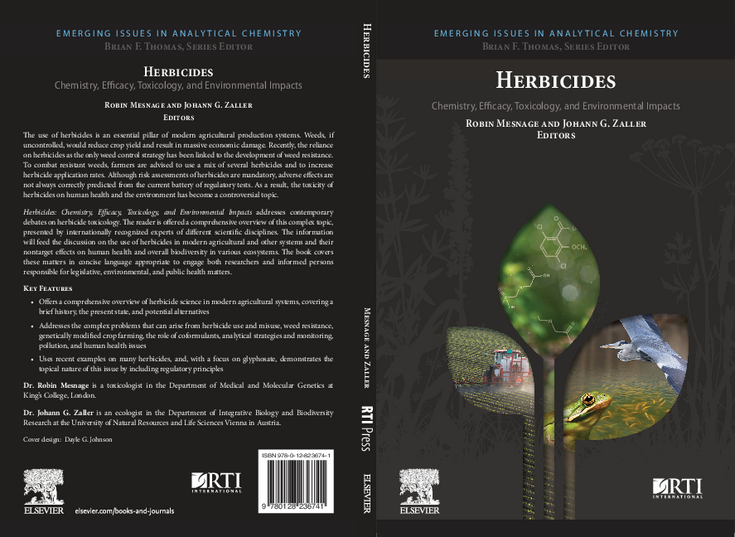Offers a comprehensive overview of current human health and environmental impacts from the use of herbicides in modern agricultural systems
The use of herbicides is an essential pillar of modern agricultural production systems. Weeds, if uncontrolled, would reduce crop yield and result in massive economic damage. Recently, the heavy reliance on single herbicides has been linked to the development of weed resistance. To combat resistant weeds, farmers are advised to use a mix of several herbicides and to increase herbicide application rates. As a result, the toxicity of herbicides on human health and the environment has become a controversial topic.
Herbicides: Chemistry, Efficacy, Toxicology, and Environmental Impacts will address contemporary debates on herbicide toxicology. The reader is offered a comprehensive overview of this complex topic, presented by internationally recognized experts. Information presented will inform the discussion on the use of herbicides in modern agricultural and other systems and their potential non-target effects on human populations and various ecosystems. The book will cover these matters in concise language appropriate to engage both specialists in the research community and informed persons responsible for legislative, funding, and public health matters in the community at large.
About the Series Volume Editors
Dr. Robin Mesnage is a toxicologist in the Department of Medical and Molecular Genetics at King’s College, London.
Dr. Johann G. Zaller is an ecologist in the Department of Integrative Biology and Biodiversity Research at the University of Natural Resources and Life Sciences Vienna in Austria.
